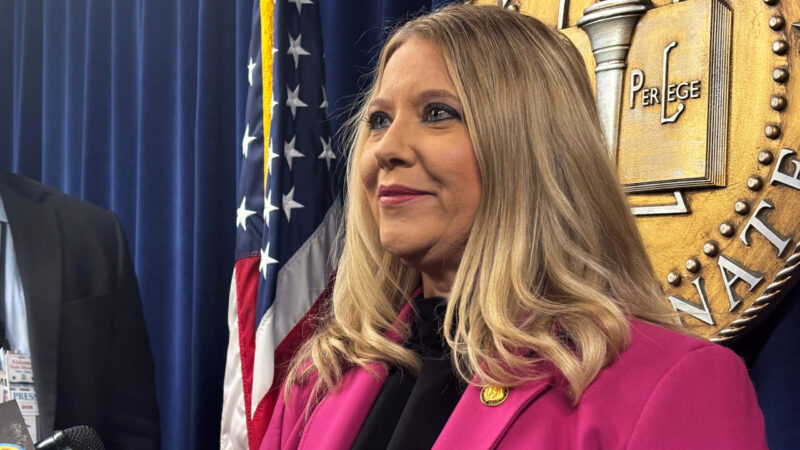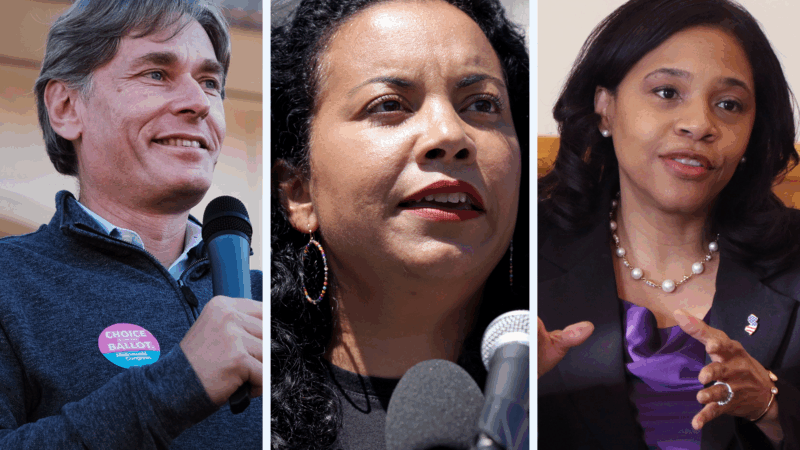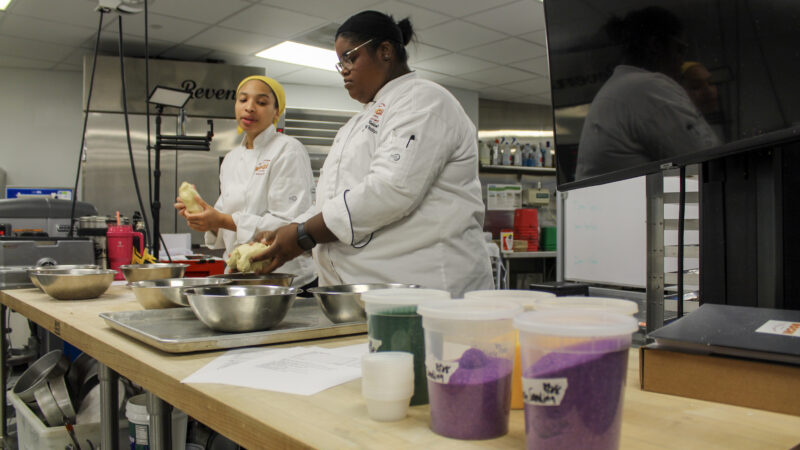How One Climate Scientist Reconciles Her Faith with Global Warming
Some people might consider Katharine Hayhoe a walking paradox. She’s an atmospheric scientist who believes in human-caused climate change and an evangelical Christian. Many white evangelicals reject some of the science behind climate change. But Hayhoe doesn’t see a conflict between her faith and science. In fact, she says her faith compels action on climate change.
Hayhoe, who co-directs the Climate Center at Texas Tech University, is set to speak Saturday in Birmingham at a conference called “Faith Meets Business: Climate Solutions for the Common Good.”
Life Under a Cloud
Hayhoe says people often lob arguments at her once they find out she’s an atmospheric scientist. People voice objections that sound scientific, she says. They’ll say it’s a natural cycle or note that “it’s been warmer before,” Hayhoe says.
She says others make religious arguments.
“They say things like ‘If God is in control, then how could humans affect something as big as this planet?’” Hayhoe says.
But Hayhoe believes that doesn’t match what the Bible says. She says in the creation story, God gives humans responsibility to care for the Earth. The Bible also warns that those who destroy the Earth will be destroyed.
“There’s a clear mandate in the Bible for humans having a particular role in caring for, stewarding, guarding, protecting this planet that we’ve been given,” Hayhoe says. “Every major world religion has some concept of caring for or being responsible for this shared home.”
Science and faith are both needed to tackle climate change, Hayhoe contends. Science can show that humans are responsible for rising global temperatures, and it can outline possible courses of action, she says. But what’s the right course of action?
“That doesn’t have much to do with the science. It has to do with what’s in our hearts, our values, what’s important to us,” Hayhoe says.
She’s driven by a religious value to care for the poor and vulnerable who will be most affected by climate change.
“When it really comes down to it, if you’re a human living on this Earth, then you already have the values you need to care about this issue,” Hayhoe says.
Heated Conversations
Different people may agree on the underlying data, but there can be real debate on what to do. Hayhoe says a major barrier to addressing climate change is solution aversion. In other words, people don’t believe there are solutions that match their values.
“I’ve been told the only solutions are to destroy the economy, to let China and other emerging economies do whatever they want, to let the United Nations run the world, to take away my truck and nobody can shower anymore,” Hayhoe says. “I’ve even heard people say the only solution really is abortion and if I’m pro-life, then of course I can’t support that.”
Hayhoe says there are a range of climate change solutions from a variety of political persuasions, from libertarian to socialist. She’s not advocating any particular one.
“As a scientist, personally, I know that we just have to cut carbon,” Hayhoe says. “As a human I want to do it in a way that, first of all, doesn’t harm and hopefully helps those who are already suffering and, second of all, a way that most people can agree on.”
A ‘Jane Doe’ in the R. Kelly trials is ready to share her real name. And her story
A once anonymous R. Kelly survivor, Reshona Landfair is now ready to reclaim her voice.
Alabama seek to bring back death penalty for child rape convictions
Alabama approved legislation Thursday to add rape and sexual torture of a child under 12 to the narrow list of crimes that could draw a death sentence.
What a crowded congressional primary in N.J. says about the state of Democrats
The contest is one of the first congressional primaries of the year where we will find out what issues are currently resonating with some Democratic voters. Here are some key things to know.
At NOCHI, students learn the art of making a Mardi Gras-worthy king cake
With Carnival in full swing, the New Orleans culinary school gave its students a crash course — and a rite of passage — in baking their first king cake.
The Winter Olympics in Italy were meant to be sustainable. Are they?
Italy's Winter Olympics promised sustainability. But in Cortina, environmentalists warn the Games could scar these mountains for decades.
Their film was shot in secret and smuggled out of Iran. It won an award at Sundance
Between war, protests and government crackdowns, the filmmakers raced to finish and smuggle their portrait of Tehran's underground arts scene to the prestigious film festival.






